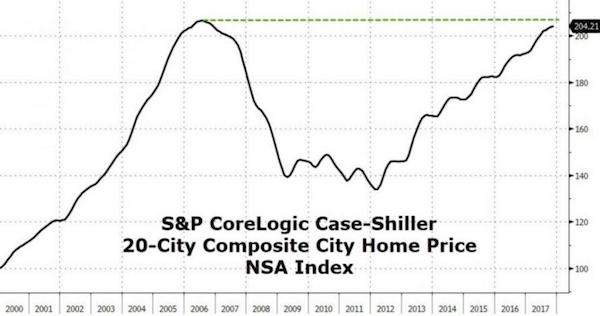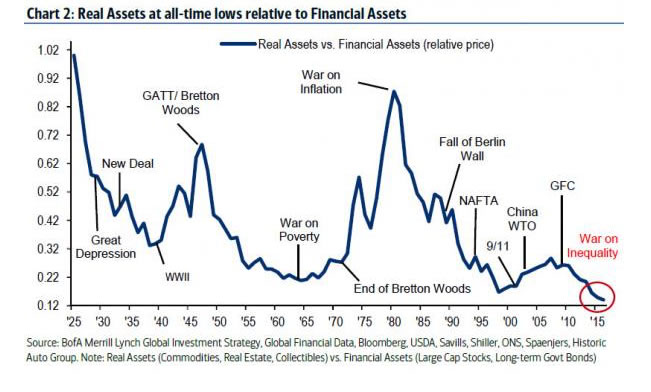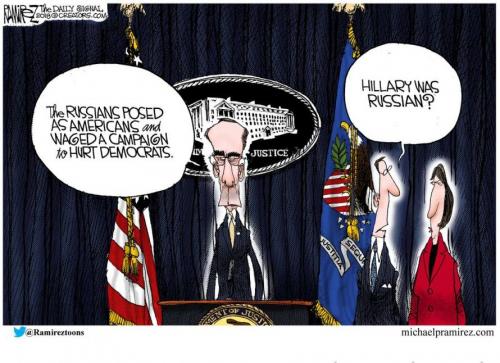
Jerome Liebling Snow, Clothes, Roof Brooklyn New York 1948

They’re simply doing it again. Anything to beep the bubble floating. Is Angelo Mozilo on the board of Quicken or something, or the FHA?
• The US Mortgage Market Is Moving Into the Shadows (BBG)
The last financial crisis occurred in part because unregulated lending in the mortgage market got out of hand. Believe it or not, it’s starting to happen again, and could ultimately precipitate another disaster unless regulators get their act together. Make no mistake, regulators have done plenty to rein in the mortgage business since the 2000s. New rules require that lenders carefully assess borrowers’ ability to pay, and that mortgage servicers – which process payments and manage other relations with borrowers – give troubled customers plenty of opportunity to renegotiate their debts before resorting to foreclosure. The Federal Reserve performs regular stress tests to ensure that banks have enough capital to weather defaults. Problem is, the requirements have weighed most heavily on traditional, deposit-taking banks.
The added hand-holding required in mortgage servicing, for example, has roughly quadrupled the cost of handling delinquent loans, turning them into major loss-makers. Together with stringent capital requirements, this has all but guaranteed that banks will lend only to people with the most pristine credit. In some cases, they have given up the business entirely: Late last year, Capital One announced it was exiting mortgage origination because it was “structurally disadvantaged.” So who has the advantage? Well, much of the regulation doesn’t apply to non-bank lenders, which typically originate mortgages and quickly sell them onward to be packaged into securities for investors. These “shadow banks” don’t take deposits, don’t have much capital, and are usually overseen by state banking authorities, which tend to be less stringent. They are also considerably more aggressive than their bank counterparts.
The non-banks’ growth has been breathtaking. At the end of 2016, such unaffiliated mortgage companies accounted for more than 40% of new conventional mortgages (those eligible for sale to government-controlled guarantors Fannie Mae and Freddie Mac), twice the share they accounted for just eight years earlier. They’re also responsible for a decline in credit standards: The average FICO score at origination stood at 730 at the end of 2017, down from 750 five years earlier. For loans guaranteed by the Federal Housing Administration – an area where the non-banks’ share is greatest – the average FICO score has fallen to 680.
The shift has been even more extreme in mortgage servicing. Non-banks now service about 51% of all loans packaged into new Freddie Mac securities, according to mortgage analytics firm Recursion Co. That’s more than double the share of just five years ago. For securitized FHA loans, the share stands at a staggering 83%. Again, banks are leaving the business: Last year, CitiMortgage announced it would exit by the end of this year, transferring the servicing rights for about 780,000 mortgages.

Tyler inserted the term ‘inadvertently’ in that headline. Really?
• Regulators Are Laying The Groundwork For The Next Housing Crisis (ZH)
Only a few weeks ago, we pointed out a remarkable development in the US mortgage market that has significant implications not only for mortgage borrowers, but perhaps the broader economy as a whole: Wells Fargo, formerly America’s foremost mortgage lender, had seen its share of the market eclipsed by Quicken Loans – the Detroit-based, nonbank lending behemoth that pioneered applying for mortgages on the Internet with its now-famous Rocket Mortgage (readers will remember RM’s celebrity-packed SuperBowl spot). Many factors (aside from Wells’ own criminality, which recently drew a strong, but ultimately meaningless, rebuke from the Fed) have contributed to this shift, as Bloomberg points out.

But as it turns out, the rising dominance of nonbank lenders like Quicken could portend a massive, bad-debt fueled binge reminiscent of the circumstances that led up to the housing crisis. That is to say, a wave of bad debt could create a cascading wave of defaults with repercussions far beyond the housing market. Considering all the restrictions that Dodd-Frank and other post-crisis regulations slapped on mortgage lenders, one might wonder how this might be possible.

Of course, as Bloomberg explains, instead of making the market safer, regulators are inadvertently enabling the rise of lenders like Quicken who aren’t bound by many of the rules that restrict banks’ mortgage-lending practices. As a result, Quicken Loans is effectively free from many of the regulations that have forced some of the biggest mortgage lenders into a period of retrenchment… [..] Because they’re not FDIC-backed, the shadow (aka “nonbank”) mortgage lenders have much more latitude to approve mortgages to borrowers with lower credit scores. This is a huge advantage in a market where supply is limited, which has helped squeeze home prices to their highest levels on record – surpassing even the pre-crisis peak from June 2006.

There is no bigger blind spot in today’s society: “Increasingly, we’re seeing folks who are becoming poor for the first time in old age.”
• This is What Life Without Retirement Savings Looks Like (Atlantic)
Many people reaching retirement age don’t have the pensions that lots of workers in previous generations did, and often have not put enough money into their 401(k)s to live off of; the median savings in a 401(k) plan for people between the ages of 55 and 64 is currently just $15,000, according to the National Institute on Retirement Security, a nonprofit. Other workers did not have access to a retirement plan through their employer. That means that as people reach their mid-60s, they either have to dramatically curtail their spending or keep working to survive. “This will be the first time that we have a lot of people who find themselves downwardly mobile as they grow older,” Diane Oakley, the executive director of the National Institute on Retirement Security, told me. “They’re going to go from being near poor to poor.”
The problem is growing as more Baby Boomers reach retirement age—between 8,000 to 10,000 Americans turn 65 every day, according to Kevin Prindiville, the executive director of Justice in Aging, a nonprofit that addresses senior poverty. Older Americans were the only demographic for whom poverty rates increased in a statistically significant way between 2015 and 2016, according to Census Bureau data. While poverty fell among people 18 and under and people 18 to 64 between 2015 and 2016, it rose to 14.5% for people over 65, according to the Census Bureau’s Supplemental Poverty Measure, which is considered a more accurate measure of poverty because it takes into account health-care costs and other big expenses. “In the early decades of our work, we were serving communities that had been poor when they were younger,” Prindiville told me.
“Increasingly, we’re seeing folks who are becoming poor for the first time in old age.” This presents a worrying preview of what could befall millions of workers who will retire in the coming decades. If today’s seniors are struggling with retirement savings, what will become of the people of working age today, many of whom hold unsteady jobs and have patchwork incomes that leave little room for retirement savings? The current wave of senior poverty could just be the beginning. Two-thirds of Americans don’t contribute any money to a 401(k) or other retirement account, according to Census Bureau researchers. And this could have larger implications for the economy. If today’s middle-class households curtail their spending when they retire, the whole economy could suffer.

And this is during the longest recovery ever.
• ‘CalPERS Is Near Insolvency; It Needs A Bailout Soon’ (ZH)
Two weeks ago, in the aftermath of the February 5 volocaust, we quoted David Hunt, CEO of $1.2 trillion asset manager PGIM, who said ignore the volatility spike, the real financial timebomb was and remains public pensions: “if you were going to look for what’s the possible real crack in the financial architecture for the next crisis, rather than looking in the rearview mirror, pension funds would be on our list.” In a brief discussion wondering what municipalities and states will do when local tax revenues decline and unemployment worsens, Hunt said “we’re worried about those pension obligations.” He is hardly alone: having reported over and over and over (and over, and over) again that public pensions are in deep trouble, two days ago none other than Steve Westly, former California controller and Calpers board member – manager of the largest public pension fund in the US, made a stunning admission, confirming everything:
“The pension crisis is inching closer by the day. CalPERS just voted to increase the amount cities must pay to the agency. Cities point to possible insolvency if payments keep rising but CalPERS is near insolvency itself. It may be reform or bailout soon.” Westly was referring to an editorial laying out “the essence” of California’s pension crisis, exposed last week when the $350 billion California Public Employees Retirement System (CalPERS) made a “relatively small change” in its amortization policy. Specifically, the CalPERS board voted to change the period for recouping future investment losses from 30 years to 20 years. While this may not sound like much, the bottom line is that it would require the California state government and thousands of local government agencies and school districts “to ramp up their mandatory contributions to the huge trust fund.”
As author Dan Walters observes, with client agencies – cities, particularly – already complaining that double-digit annual increases in CalPERS payments are driving some of them towards insolvency, the new policy – which kicks in next year – will raise those payments even more. “What we are trying to avoid is a situation where we have a city that is already on the brink, and applying a 20-year amortization schedule would put them over the edge,” a representative of the League of California Cities, Dane Hutchings, told the CalPERS board before its vote. CalPERS, however, has no choice because as both Walters and Westly claim, America’s largest public pension fund itself is on the brink, “and the policy change is one of several steps it has taken to avoid a complete meltdown.”
As we have reported previously, the Calpers system, once more than 100% funded, now has scarcely two-thirds of what it would need to fully cover all of the pension promises to current and future retirees. And that assumes it will hit an investment earnings target of 7% per year, that many authorities criticize as being too optimistic.

Those pesky Russian propagandists are at it gaian.
• ‘We Can’t Continue to Run the World’ – Ron Paul (Sputnik)
Sputnik: Donald Trump has been in office for over a year. What is your general assessment of his job as president? Ron Paul: Mediocre; probably not worse than the other options. But I don’t think presidents really have much control. I think the deep state – the people behind the scenes and the shadow government, who control the monetary system, who control our foreign policy and the welfare state, and are connected to the media and the military-industrial complex. – I don’t think the presidency is as important as it’s made out to be. But everybody talks about it; it’s a political thing, and they keep churning the issue and directing everybody to ask ‘is Trump a good guy or a bad guy, and are we going to impeach him or what’s going to happen’, rather than [asking] what kind of philosophy do we have: why do we have this philosophy of welfare-warfare, spend money, run up debt and let the central bank print all that money.
They don’t even talk about it; the major parties, including Trump, they sign even more controls on us when it comes to FISA courts and spying on us. In spite of the fact that government officials like the FBI and others actually spy on our own president, he supports this; he passes and signs bills on that. So that really raises questions about ‘does the president really have much to say’, and I think he has much less to say than a lot of people believe. I believe that if he had stuck to his guns and had a different relationship with Russia and started bringing troops home and not aggravating things, he wouldn’t have been tolerated. Something would have happened.
[..] Sputnik: There’s an ongoing campaign in the east of Demascus in Eastern Ghouta, with media portrayals of it in the West comparing the ongoing campaign to Srebrenica and what happened in Bosnia. Why do you think this is, and how is the situation being portrayed in the West? Do Americans know what’s actually going on? Ron Paul: I think this, indirectly, may be a subtle bit of good news…You know Aleppo was seen as a return of Syrian territory, and a lot of people moved back! Everybody said that ‘it’s Assad who wants to kill his people and gas his people,’ and yet they all moved back after the fighting stopped. So maybe this is one of the last desperate stands [for the anti-Damascus forces], at least for the part of Syria where Assad is stronger…
Sputnik: The UN has been commenting on this to emphasize how bad things are in Syria, and particularly in Eastern Ghouta. But the situation was also really bad in Mosul in Iraq, with recent video footage showing the results of US airstrikes. Where do you think the UN was then? Ron Paul: Probably cheering them on. We often have a foreign policy, especially in the last several decades, of being the dominant power. We pressure people; if they do what we tell ’em, we send them more money, since we can print the world currency. And if they don’t do what we tell ’em, then we have to participate in a little aggression by bombing and doing these kinds of things. My argument from the day they started, back to 1998 – I argued don’t mess around with sanctions on Iraq, it’ll lead to war.
Someday, we’ll go broke. I don’t think that we all of a sudden will have a reasonable foreign policy. I think it’s going to be financial. I believe it was the financing of the Soviet system that brought it down as much as anything; that’s the way most authoritarian empires end, and I think that’s the way our system is going to end. Who knows when that’s going to happen, but we can’t continue to do what we’re doing. We can’t continue to run the world. Our deficit’s exploding. I think the sentiment toward the United States has started to shift too; there was a time when we were welcome, and were on the side of trying to help people, but right now it’s on the side of expanding our controls around the world.

Ever more people are sick of the narrative.
Perhaps because a weary public was underwhelmed by his indictment last week of thirteen ham sandwiches with Russian dressing, Special Prosecutor Robert Mueller has returned to an old baloney sandwich with American cheese named Paul Manafort, and slathered on some extra mayonnaise to lubricate his journey to federal prison. The additional charges specify tax evasion and money-laundering shenanigans around Manfort’s activities in Ukraine between 2006 and 2015, a period that included the USA’s active participation in the overthrow of Ukraine’s elected president, Victor Yanukovych, who had declared a desire to join the Russian Customs Union instead of being shanghaied into an expanded NATO.

Scrupulous observers may note that all this took place well in advance of the 2016 US presidential election, when Manafort was candidate Donald Trump’s campaign manager for several months before being thrown overboard for reasons still publicly unknown — but probably the awareness that Manafort’s personal financial affairs were a smoldering wreck. Meanwhile, Manafort’s business colleague, Rick Gates, has also been charged by Mueller, and this week an associate of Gates, one Alex Van Der Swaan, son-in-law of a Russian billionaire, was persuaded to plead guilty to lying to the FBI about his contacts with Gates.
All of this suggests that there were fabulous opportunities for American profiteering in the sad-sack, quasi failed state of Ukraine, and that the feckless Manafort circle will be doing Chinese fire drills in the federal courts until the cows come home, but it doesn’t say a whole lot about Russian interference in the 2016 US election. One might surmise that there is enough pressure on Manafort and company to get them to say anything now to save their asses. On the other hand, it could lead in open court to the airing of all sorts of dirty laundry about surreptitious US meddling in Ukraine, and about the corps of camp-following money-grubbing American grifters who raced in after 2014 to steal anything that wasn’t nailed down there by the homegrown kleptocrats.


Oh man, first thing that comes to mind is Trump proposing the same thing. That would be so much fun!
• China Seeks to Repeal Term Limit, Opening Way for Xi (BBG)
China’s Communist Party proposed removing from the constitution language limiting the president to two terms, the clearest sign yet that Xi Jinping intends to extend his tenure as state leader. The party’s decision-making Central Committee wants to strike language from the document that says the country’s head of state “shall serve no more than two consecutive terms,” the official Xinhua News Agency said Sunday. The announcement came a day before the committee plans to meet in Beijing to consider key personnel appointments and government-restructuring moves. The constitutional provision barring the president from serving more than 10 years is the only formal barrier keeping Xi, who also serves as party leader and commander-in-chief of the military, from ruling after 2023. Speculation that Xi, who came to power in 2012, would seek to rule for longer has intensified since he declined to line up a clear successor at a twice-a-decade party reshuffle in October.

Can’t let the pressure slip.
• Greece Creditors Return To Athens For Fourth Bailout Review (K.)
With the third bailout review still pending, the heads of the creditors’ representatives are set to arrive in Athens on Monday for the start of talks on the fourth and final review of the program, while technical discussions on the issue of lightening the Greek debt are also ongoing. Talks on the fourth review will begin with only 11 or 12 of the prior actions having been implemented to date, out of a total 88. However, there are still two milestones from the third review to be implemented, concerning the development of the Elliniko plot in southern Athens and the increase in and expansion of online auctions. Only when these are seen to have been fulfilled will the creditors approve the disbursement of the first subtranche of €5.7 billion from the third installment, to be followed by the remaining €1 billion at a later date.
Therefore discussions on the fourth review next week will, according to sources, only be of a provisional nature, with the main issues being set out and a timetable determined for the process. The heads of the creditors’ mission will leave next Saturday and return to Greece in April, probably after the spring meeting of the IMF on April 20-22. Technical talks on the easing of Greece’s debt and its association with the implementation of reforms are also continuing, as the head of the European Stability Mechanism, Klaus Regling, confirmed on Friday, reiterating his statements in an interview with Kathimerini last month.
The technical team of the eurozone is expected to present its provisional conclusions at the Euro Working Group meeting of March 1 for an early assessment, with the issue set to be revisited at the March 12 Eurogroup meeting. Eurozone sources stress that the discussion will continue in the following months and that there will be more clarity on the debt relief matter at April’s Eurogroup, adding that one should not expect an agreement before May or June, as such decisions “require more than one debate at a Eurogroup level.”

“Greece is an organized country, it has all the means to defend its borders and its territory.”
• ‘Greece Is Neither Iraq Nor Syria,’ FM Tells Turkey (K.)
“Turkey must think about what I have been saying for two years, that Greece is neither Syria nor Iraq,” Greek Foreign Minister Nikos Kotzias said on Saturday, referring to recent tension emanating from Turkey. “I honor and respect these two states and do not say this in a derogatory manner,” he said in radio comments on Saturday, adding that Ankara cannot violate international law in the way it does in the Middle East. “Greece is an organized country, it has all the means to defend its borders and its territory.” Kotzias insisted that Turkey’s behavior in Cyprus’s exclusive economic zone (EEZ) will not block Nicosia’s energy plans. “I don’t think Turkey can do this. Ankara knows that Cyprus’s energy plans are linked to France and the US,” he said, adding that Turkey will not be able to display its recent bravado towards these two countries. Kotzias also described a statement on Friday by the European Union backing Greece and Cyprus as “the most powerful one yet.”

No, it doesn’t. Bad journalism. Their conveniently far enough away date is 2030.
• EU Hints At Outlawing Single-Use Plastics By Summer (Ind.)
The European Commission has hinted the EU could ban single-use plastics after Michael Gove said there was “some concern” Europe may prevent the UK from outlawing plastic straws. Frans Timmermans, vice president of the EU’s executive cabinet, told Mr Gove on Twitter: “One step ahead of you. EU legislation on single-use plastics coming before the summer. Maybe you can align with us?” The announcement came shortly after the Environment Secretary announced he was looking into the legal basis for ditching single-use straws. Mr Gove told Sky News: “Plastic straws are a scourge. They’re just one example of the ways in which we pollute the oceans and damage marine wildlife. I want to do everything we can to restrict the use of plastic straws and we’re exploring at the moment if we can ban them.”
He added: “There is some concern that EU laws mean that we can’t ban straws at moment, but I’m doing everything I can to ensure that we end this scourge and I hope to make an announcement shortly. “Straws are not just another example of plastic waste – they can be lethal… I believe we need to act and I’m exploring now what we can do as quick as possible within the law.” But Dr Viviane Gravey, lecturer in European politics at Queens University Belfast, told The Independent Mr Gove’s comments were “basically nonsense”. “It is especially nonsense for just that example of plastic straws,” she said. ”We know that the Scottish government – within the EU – is saying that they are going to ban them by the end of 2019. That means during the transition or implementation period… still while being bound by all EU law.”
The move comes just a day after official figures revealed the number of straws purchased by Parliament has doubled in the last three years. [..] On Wednesday, Mr Timmermans told a conference there is “urgent work to do” following China’s decision to limit imports of plastic waste. “We will find ways to reuse and recycle more plastic and avoid microplastic leakage,” he said. During an announcement on EU plans to ensure all plastic is recyclable or reusable by 2030, Mr Timmermans specifically mentioned plastic straws as something that needed to be outlawed. “If children knew what the effects are of using single-use plastic straws for drinking sodas, or whatever, they might reconsider and use paper straws or no straws at all,” he told The Guardian.








